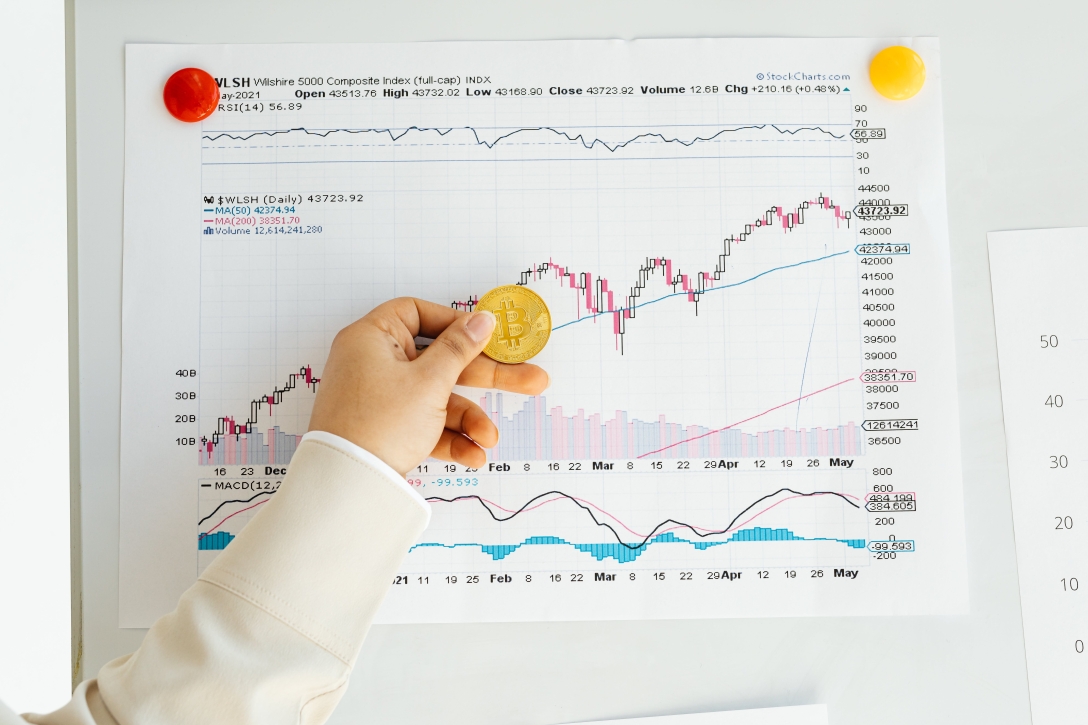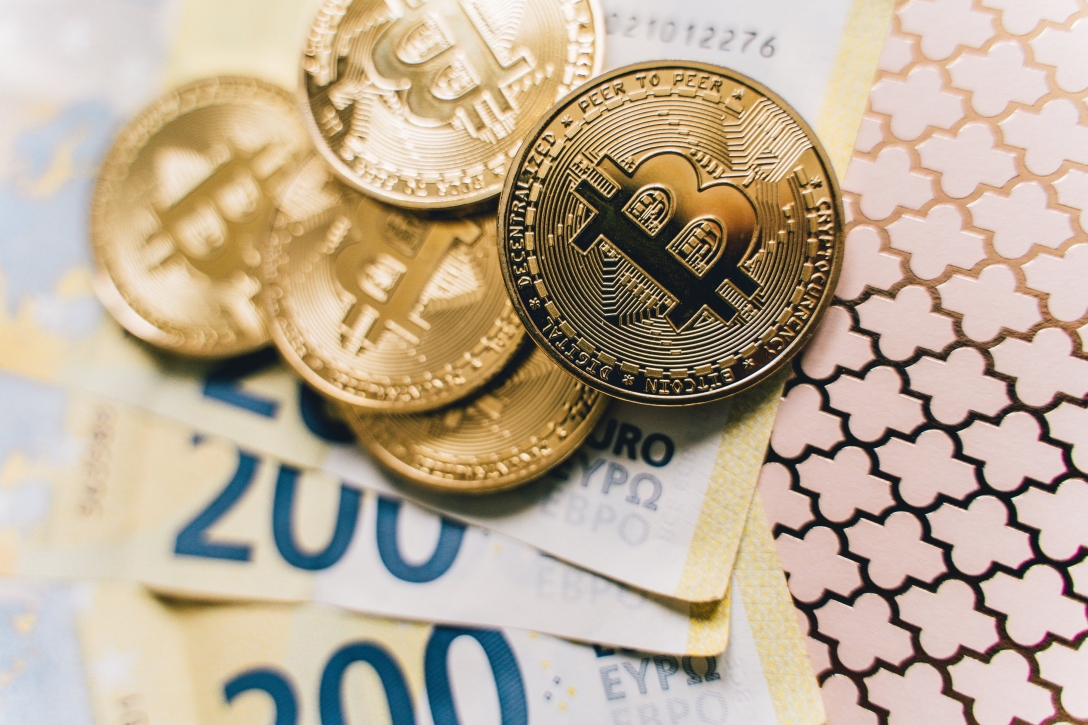В парламенте появились два законопроекта, которые регулируют вопросы связанные с оборотом криптовалюты и налогообложением доходов от продажи виртуальных активов. Есть ли шанс, что один из этих проектов будет принят при голосовании, и как новое законодательство повлияет на граждан, занимающихся покупкой и продажей криптовалюты?
Парламент должен рассмотреть законопроекты по обороту виртуальных активов. Ведь до сих пор в Украине операции с криптовалютой находятся вне государственного надзора, и теперь депутаты предлагают легализовать оборот виртуальных активов. «Сегодня криптосектор находится в состоянии стагнации, потому что остановлена работа фиатных шлюзов с поставщиками услуг виртуальных активов, которые зарегистрированы за пределами Украины и функционировали до начала полномасштабной войны. Одна из причин — отсутствие государственного регулирования на крипторынке», — отметила недавно директор директората цифровой экономики Министерства цифровой трансформации Украины Юлия Пархоменко. По ее мнению, нужно как можно быстрее принять законодательство о виртуальных активах, чтобы восстановить функционирование фиатных шлюзов для полноценной работы участников рынка и создать конкурентные преимущества для бизнеса. Между тем, в ноябре в парламент попали проект №10225 и альтернативный проект №10225-1.
«Принятие ВРУ одного из указанных законопроектов фактически будет означать регулирование рынка виртуальных активов в Украине и установление правил налогообложения операций с такими активами», — говорит Анастасия Туз, адвокат юридической компании Miller. Что предлагают законодатели и улучшат ли их предложения ситуацию для тех, кто покупает и продает крипту в Украине?
Криптовалютам — регулирование: что предлагается для легализации оборота виртуальных активов
Сегодня вопрос оборота криптовалют в Украине законодательно не урегулирован, хотя, напоминают юристы, основной закон относительно криптоактивов был принят более года назад, но изменения в Налоговый кодекс с того времени так и не были приняты. А это — главное условие, чтобы закон «О виртуальных активах» вступил в действие.
«Сейчас можно говорить только о подписанном Президентом Украины Законе Украины «О виртуальных активах» от 15 марта 2022 года. Вступление в силу данного закона связано с внесением изменений в Налоговый кодекс Украины относительно особенностей налогообложения операций с виртуальными активами. Именно в этом законе криптовалюта упоминается, как виртуальный актив, где законодатель толкует его, как нематериальное благо, которое является объектом гражданских прав, имеет стоимость и выражено совокупностью данных в электронной форме. Фактически, отношения на криптовалютных биржах не урегулированы ни одним нормативным актом, что делает невозможным защиту интересов участников таких отношений. Поскольку криптовалюта является видом валюты, любые гражданско-правовые отношения с использованием ее, как способа расчета, не охраняются законом«, — рассказал Фокусу Александр Курявый, управляющий партнер юридической компании «Муренко, Курявый и Партнеры».
В начале ноября 2023 года в парламенте зарегистрировали проект №10225, цель которого — нормировать вопросы оборота виртуальных активов. «Проектом закона путем внесения изменений в Налоговый кодекс Украины предлагается, в частности: введение механизма налогообложения налогом на прибыль предприятий виртуальных активов, путем введения отдельного учета результатов и корректировки финансового результата; введение механизма налогообложения НДФЛ виртуальных активов», — говорится в пояснительной записке к проекту №10225.
Что предлагает законопроект №10225
- обязать юридических и физических лиц вести отдельный учет операций, которые они осуществляют с виртуальными активами;
- установить для физических лиц ставку налогообложения операций с криптоактивами на уровне 18% налога на доходы физических лиц, а также 1,5% военного сбора (всего 19,5%); сделать базой налогообложения планируют финансовый результат, уменьшенный на стоимость криптоактивов;
- установить, что налогообложению будет подлежать только положительный финансовый результат с виртуальными активами, тогда как в случае убытков из-за торговли криптовалютой по итогам года предлагается на следующий год уменьшить налоговую базу;
- запретить операции с криптовалютой ФОПам-плательщикам единого налога 1-3 группы;
Законопроект №10225 также устанавливает права и обязанности регуляторов рынка виртуальных активов — полномочия по госрегулированию и надзору получают Национальная комиссия по ценным бумагам и фондовому рынку и Нацбанк. А вот в проекте №10225-1 регуляторами рынка виртуальных активов определены Минцифры и НБУ.


Что предлагает законопроект №10225-1
- установить порядки осуществления публичного предложения виртуальных активов и авторизации поставщиков услуг, связанных с оборотом виртуальных активов;
- внедрение Государственного реестра поставщиков услуг, связанных с оборотом виртуальных активов, предлагаемых публично;
- установить ответственность в виде финансовых санкций для поставщиков услуг, связанных с оборотом виртуальных активов за нарушение законодательства при предоставлении услуг.
- налогообложение налогом на прибыль предприятий операций с виртуальными активами; введение механизма налогообложения НДФЛ доходов, полученных физическими лицами от операций с виртуальными активами (то есть, налог 18%).
- отсутствие какой-либо авторизации для майнинга как для физических, так и для юридических лиц.
Как пояснила Юлия Пархоменко, проект закона Украины № 10225-1 предлагает также льготное налогообложение доходов физических лиц по ставке налога 5% в течение первых 3 лет, 9% в течение следующих 5 лет, после чего применяется общая ставка налога 18%.
Основной закон относительно криптоактивов был принят более года назад, но изменения в Налоговый кодекс с тех пор так и не были приняты
Между тем, согласно этому проекту, налог на прибыль для провайдеров услуг, связанных с криптовалютой, составит 18% или 9% налога на выведенный капитал при условии использования специального режима Дія.City. Операции с виртуальными активами освобождаются от НДС, за исключением служебных токенов, как и операции провайдеров услуг, связанных с криптой, за исключением консультационных услуг.
Нужны льготы: как экспертная среда оценила инициативы по налогообложению доходов от крипты
Большинство стран в своей концепции налогообложения виртуальных активов прописали налогообложение операций с виртуальными активами, как инвестиционную деятельность, фактически, законопроект №10225 предлагает похожий подход, комментирует адвокат Анастасия Туз.
«Налогообложению будет подлежать положительная разница между суммой дохода, полученного от продажи или иного отчуждения виртуальных активов, и стоимостью виртуальных активов. Налогоплательщик обязан вести отдельный учет операций с виртуальными активами, отдельно от других доходов и расходов и отдельно от операций с другими инвестиционными активами. По моему мнению, учитывая специфику деятельности с виртуальными активами, это вполне логично и реально. Налоговый кодекс Украины уже содержит аналогичные положения относительно отдельного учета определенных операций.
Например, налогоплательщик определяет финансовый результат по операциям с ценными бумагами или деривативами, находящимися в обращении на фондовой бирже, отдельно от финансового результата по операциям с ценными бумагами или деривативами, которые не находятся в обращении на фондовой бирже«, — объяснила Анастасия Туз.


Проект №10225 поддерживает председатель Комитета ВРУ по вопросам финансов, налоговой и таможенной политики Даниил Гетманцев. Как он ранее сообщил Фокусу, парламент не будет затягивать с принятием проекта, но обязательно проведет все необходимые консультации по содержанию этого проекта.
«Что касается определения модели налогообложения виртуальных активов, мы должны подойти по аналогии к родственным объектам гражданского права. Таковыми являются ценные бумаги и деривативы. Не думаю, что налогообложение виртуальных активов должно существенно отличаться и поэтому согласен с подходом законопроекта. С другой стороны, не могу в полной мере разделить подход относительно льготирования операций с виртуальными активами ввиду того, что развитие финансовых операций, в ходе которых не создается добавленная стоимость и большое количество рабочих мест, не могут получать стимул со стороны государства. Однако, бесспорно, все эти вопросы будем еще обсуждать», — говорит Даниил Гетманцев.


Однако, за проект №10225-1 выступает Министерство цифровой трансформации Украины.
«Закон «О виртуальных активах» принят Парламентом в 2021 году и подписан Президентом в 2022 году. Однако из-за работы над изменениями в Налоговый кодекс законодательство о виртуальных активах до сих пор не заработало. Кроме этого, на уровне ЕС уже принят регламент о регулировании крипторынка MiCA, положения которого Украина должна имплементировать в национальное законодательство, чтобы интегрироваться в общеевропейский финансовый рынок. За это время большинство европейских стран уже ввело правила игры на крипторынке или путем разработки отдельного законодательства о криптоактивах, или адаптировав правила ценнобумажного законодательства для нового класса активов. Украина же потеряла два года для легализации новой индустрии«, — считает Юлия Пархоменко.


Об упущенном времени Фокусу рассказал и эксперт по виртуальным активам, СЕО Peanut.trade Александр Момот.
«Единственное, на что вообще нужно регулирование в этом секторе, это фиатный шлюз, и предложенная инициатива законодательного регулирования на 10-20% выведет из тени операции с криптовалютой, поможет делать операции в белую тем, кому это важно. С точки зрения продуктовых стартапов, то, к сожалению, в Украине таких почти нет, они уже выехали из Украины в Португалию и другие страны, не думаю, что они будут регистрироваться в Украине, и поэтому эффект, который будет даже от лучшего законодательства, в конце концов будет слабым. Украина пропустила окно возможностей из-за борьбы регуляторов. Сейчас то, что предлагается законопроектами, это 10-15% от идеального законопроекта«, — уверен эксперт.


Некоторые экономисты поддерживают альтернативный проект №10225-1, ведь считают, что именно там больше полезного для развития рынка виртуальных активов. По мнению эксперта по экономике Украинского института будущего Даниила Монина, в этом проекте достаточно удачно прописана система налогообложения, когда не надо облагать налогом внутренние дела площадок торговли, а обмен одних криптоактивов на другие не является объектом налогообложения, тогда как объектом является только продажа виртуального актива и получение за него денег, а также покупка за актив товаров и услуг.
Кроме того, эксперт отметил еще несколько важных норм проекта №10225-1:
- льготный период налогообложения;
- НКЦБФР вообще убрали с рынка, комиссия ничего не регулирует. Основное регулирование и авторизацию проводит Минцифры;
- нет никаких ежегодных платежей за поддержку авторизации;
- аудит проводится независимыми аудиторами и стоимость аудита — оплата поставщика услуг;
- вводится 10-летний период, что консультации на рынке крипты можно проводить без получения авторизации;
- майнинг юрлицами и физическими лицами не требует никакой авторизации;
- предлагается запуск инновационной зоны — специальной стартап-среды для содействия инновациям, упрощения тестирования новых продуктов с виртуальными активами.
«Общий вердикт. Если принимать закон о налогообложении крипты и новую редакцию закона о виртуальных активах, то только проект №10225-1», — убежден Даниил Монин.


